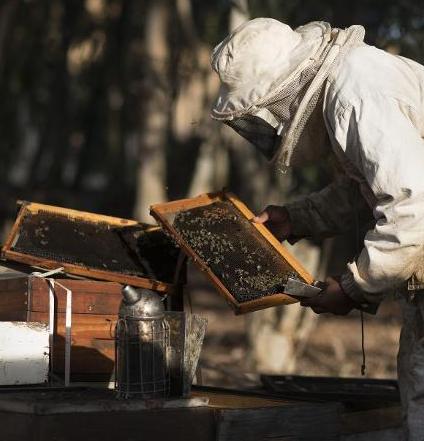Bees are ‘sick of humans’ as bacterial plague wipes out thousands of hives
In a worrying development which could threaten food production, South Africa’s traditionally tough honey bees - which had been resistant to disease - are now getting “sick of humans”, with the population of the crucial pollinators collapsing, experts say. Loss of habitat, the increasing use of pesticides and growing vulnerability to disease are blamed by many critics for the plight of the honey bees. In South Africa, an outbreak of the lethal bacterial disease foulbrood is spreading rapidly for the first time in recent history, says Mike Allsopp, honey bee specialist at the Agricultural Research Council in Stellenbosch in the Western Cape province.
Bees are sick of humans and the pressures and the stresses humans are putting on them. In the past they were less vulnerable because they weren’t stressed by intensive bee-keeping and pesticides and pollution.
Mike Allsopp, honey bee specialist at the Agricultural Research Council in Stellenbosch
The foulbrood hitting South Africa is the American strain of the disease, he said. The country’s bees have previously coped with the European version. The fear is that the disease could spread north through Africa, where hundreds of thousands of people work in small-scale bee farming, Allsopp said. "It is a ticking time bomb. Every colony that I’ve looked at that has clinical foulbrood has died, and we’re not seeing colonies recover.“ Foulbrood attacks the bee larvae, leading to the collapse of the colony. It is spread when bees raid the dead colony, bringing back spore-infected honey to their colony, or by the importation of contaminated bee products.

Science honey bees